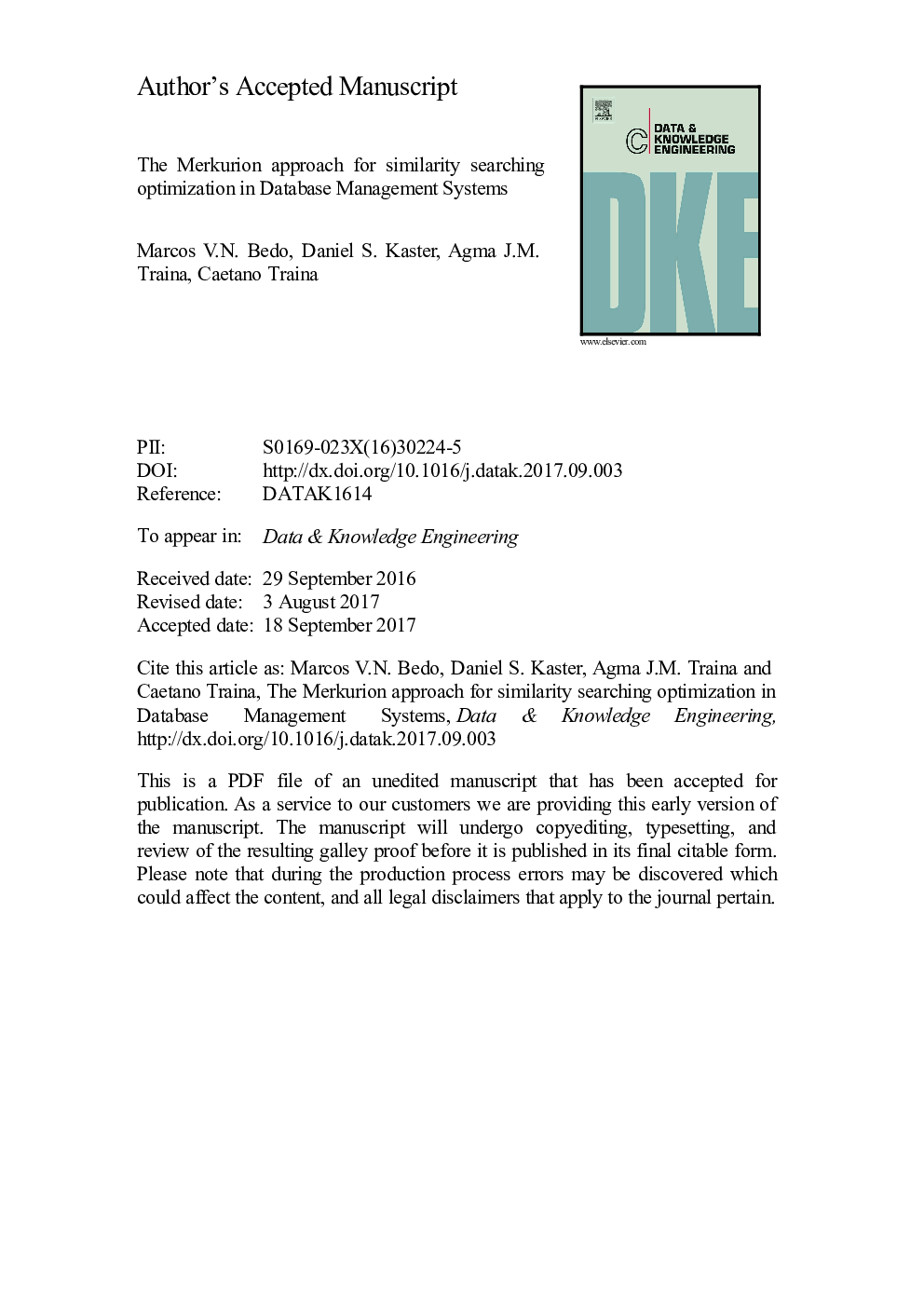| Article ID | Journal | Published Year | Pages | File Type |
|---|---|---|---|---|
| 6853953 | Data & Knowledge Engineering | 2018 | 40 Pages |
Abstract
Modern Database Management Systems (DBMSs) retrieve songs that resemble those in a music dataset, identify plagiarism in a set of documents, or provide past cases to physicians by taking into account the characteristics of a query exam. All such tasks require the comparison of data by similarity, which can be expressed in terms of distance-based queries in metric spaces. Traditional query processing relies mostly on histograms for describing the data distribution space and choosing a data retrieval path that quickly leads to the answer, discarding comparisons of most unwanted data. However, DBMSs still lack adequate support for selectivity estimation of query operators for data types embedded in metric spaces. This article addresses a novel strategy that extends the query optimizer of a DBMS, so that it can also perform both logical and physical query plan optimizations in searches that include similarity predicates. The proposal, named Merkurion, updates the concept of Data Distribution Space and captures data distributions according to the distances between the elements within a dataset. Moreover, it employs concise representations of such distributions, called synopses, for the definition of rules that enable similarity searching optimization. An extensive evaluation of Merkurion in real-world datasets has proven its effectiveness and broad applicability to many data domains.
Related Topics
Physical Sciences and Engineering
Computer Science
Artificial Intelligence
Authors
Marcos V.N. Bedo, Daniel S. Kaster, Agma J.M. Traina, Caetano Traina Jr.,
